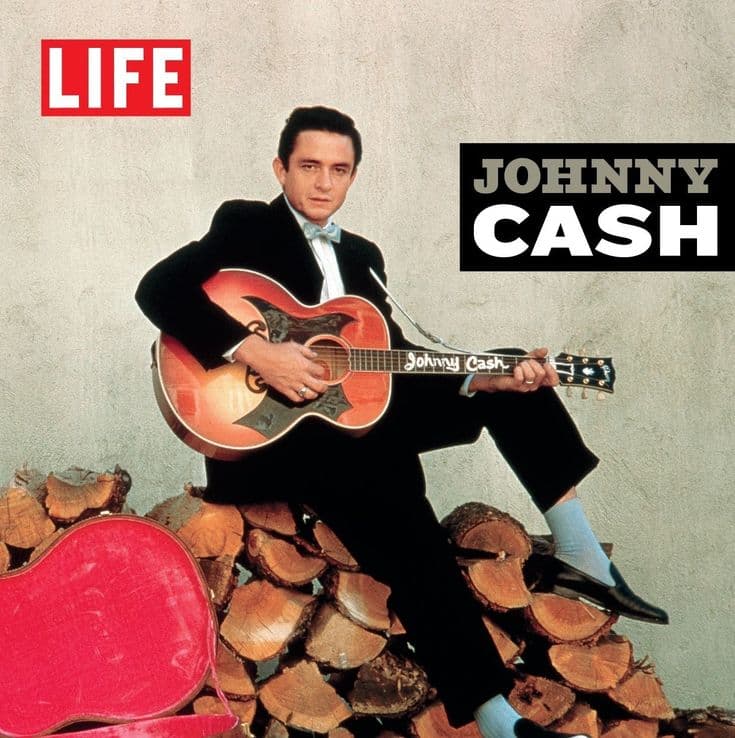
Johnny Cash’s “Daddy Sang Bass” – A Joyful Tribute to Family and Faith
Released in 1968, “Daddy Sang Bass” became one of Johnny Cash’s most beloved hits, showcasing his signature blend of gospel, country, and storytelling. Written by Carl Perkins, the song tapped into the themes of family, faith, and perseverance—core elements of Cash’s music and personal beliefs. As a musical giant already known for his deep, resonant voice and heartfelt lyrics, Cash brought “Daddy Sang Bass” to life with warmth, nostalgia, and an unmistakable sense of joy.
The song rose to prominence at a pivotal moment in Johnny Cash’s career. Having endured personal struggles and battles with addiction, Cash had re-emerged as a symbol of redemption and resilience, with a growing popularity that transcended the country genre. When “Daddy Sang Bass” hit the airwaves, it resonated deeply with audiences, reaching #1 on the Billboard Hot Country Singles chart and further cementing Cash’s reputation as a storyteller of the American experience.
Lyrically, “Daddy Sang Bass” reflects a time-honored tradition of gospel harmonies and family unity. The song tells the story of a family’s musical gatherings, where each member has a role to play in the choir of life: “Daddy sang bass, Mama sang tenor, me and little brother would join right in there.” These simple yet profound lyrics evoke a sense of nostalgia for a time when family bonds were strengthened through music and shared moments. In many ways, the song acts as a celebration of togetherness, something that Cash valued deeply in his own life.
Johnny Cash’s delivery of the song is what makes it truly special. His deep baritone voice, often described as the “voice of the working man,” gives the song a grounded, earthy feel, while the background harmonies from The Carter Family (including his wife, June Carter Cash) add layers of warmth and authenticity. The dynamic between Cash’s low register and the higher harmonies creates a sense of familial connection, mirroring the message of the lyrics.
The recurring chorus—“Singin’ seems to help a troubled soul”—captures the heart of the song. It’s a reminder of the healing power of music, particularly gospel, in times of hardship. For Cash, who was no stranger to personal demons and struggles, the act of singing gospel and reconnecting with his roots was both a form of solace and redemption. The message is clear: no matter how difficult life becomes, the love of family and the faith embodied in music can help one persevere.
Beyond its personal significance, “Daddy Sang Bass” also taps into a broader cultural tradition. The song draws inspiration from Will the Circle Be Unbroken, a well-known gospel hymn about the eternal bond of family and faith. Cash’s version, however, adds a modern country twist, making it both a tribute to the past and a reflection of contemporary struggles. This ability to bridge the gap between old-time gospel and modern country music is one of Cash’s greatest strengths, and it’s on full display in this song.
Carl Perkins, who wrote the song, had long been a close friend and collaborator of Cash’s, and his contribution is an important part of the song’s charm. Perkins crafted the lyrics as a reflection on his own childhood memories, where music was an integral part of family gatherings. In the hands of Johnny Cash, these memories took on a universal resonance, reminding listeners of their own experiences with family, faith, and the power of music.
“Daddy Sang Bass” also came at a time when the American music scene was evolving, with the lines between country, gospel, and rock ’n’ roll becoming increasingly blurred. Cash, along with his contemporaries, was at the forefront of this shift, appealing to audiences across genres and generations. The success of “Daddy Sang Bass” was not only a testament to Cash’s widespread appeal but also a reflection of the song’s timeless message—one that transcended musical categories.
Though the song was released during a period of social and political upheaval in the United States, “Daddy Sang Bass” remains refreshingly apolitical. Instead, it focuses on the simple yet profound themes of love, unity, and faith. In this way, the song offers a kind of refuge—a reminder that, even in uncertain times, the strength of family and the comfort of music can carry us through.
Decades after its release, “Daddy Sang Bass” remains a fan favorite and an essential part of Johnny Cash’s legacy. Its cheerful melody, heartfelt lyrics, and message of perseverance continue to resonate with audiences, making it a timeless classic in the canon of American country music. Through this song, Cash once again affirmed his place as a master storyteller—one who could take the simplest of themes and elevate them into something deeply meaningful and universal.
Whether you grew up singing along with family or are hearing it for the first time, “Daddy Sang Bass” remains a joyous celebration of the things that matter most: family, faith, and the music that binds us all together.